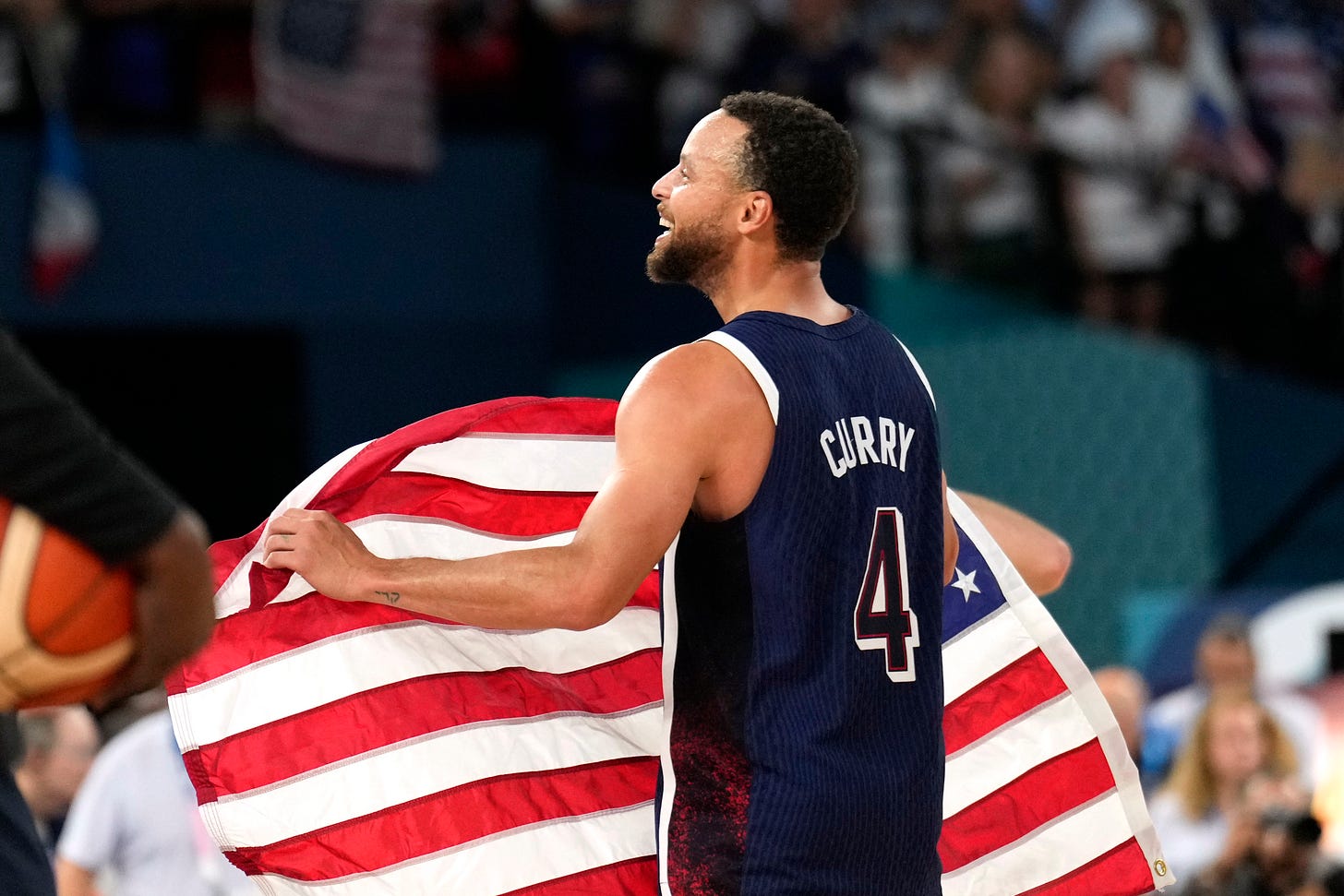On the track, in the field, the course and the court, the Olympics are just different

So, I’m watching the Olympics’ most quintessential sport and by that I mean track and field, and Sydney McLaughlin-Levrone took the baton from Shamier Little and in the space of a breath was gone.
Just like that the U.S. women’s 4x400 relay team was running a different race.
I said, out loud, after 100 meters or so from McLaughline-Levrone, “… like Secretariat at the Belmont.”
At race’s end, Leigh Diffey, calling it for NBC, would make the same comparison and so, too, would Mike Tirico, NBC’s primary Olympic host, reminding us Secretariat’s run came 51 years ago, occurring in 1973.
Not only did the U.S. women remind us of a generations old horse race, they set a new American record of 3:15.27, which may not seem like a big deal in a sport built on world records, only that particular American record was set in 1988, almost 40 years ago in a silver medal run at the Seoul Olympics that would have been a world record itself had the Soviet Union not put up 3:15.17, still standing as history’s best.
That American team was anchored by Florence Griffith-Joyner, who might have been America’s most famous female athlete at the time, unless you’re sticking with Chris Evert or Nancy Lopez.
So, you know … WOW.
An amazing performance, tied to history … the Olympics are just different.
We’ve watched Scottie Scheffler cry on the podium upon winning gold in a way we’ve never seen him after winning a PGA Tour event or even the Masters, which he captured this year and two years prior.
It was the same for New Zealand’s Lydia Ko, who’s won 20 LPGA Tour events, eight more than Scheffler on the men’s circuit, and a couple majors, too.
We’ve watched California native Tara Davis-Woodhall, who is Black, after winning the women’s long jump, run into the arms of her husband, Hunter Woodhall, who is white, a double-amputee, hailing from Utah but who sprinted at Arkansas and is a three-time Paralympic medalist, too, and, if you’re like me, all you could think was one thing.
Only in America.
Then, after things finished on the track Saturday, we got to see the greatest shooter who ever lived put on the greatest shooting exhibition we’ve ever seen — or, at least, the one the most of us watched together — making certain the U.S. men claimed basketball gold against a very game and home-court advantaged team from France.
It writes itself.
Curry had never been an Olympian before. He netted 36 points to lead the U.S. past three-time NBA MVP Nikola Jokic and Serbia, a semifinal game the Americans trailed by 13 points entering the fourth quarter and here he was again, threatening to be the reason the Americans gave up gold only to become the biggest reason they won it.
Inside of 4 minutes remaining, Curry committed his fifth turnover. On the other end, Guerschon Yabusele hit one of two free throws and France was within 82-77.
Then, after a Curry miss — and a crazy blocked shot by Kevin Durant of Yabusele; though France kept possession — Victor Wembanyama followed his own miss and it was a one-possession game.
No problem, on four of the next five trips down the floor, Curry hit 3s. The one he didn’t, Durant hit two free-throws.
The first three of those 3s did not touch the rim. The last of them, though it rattled home, was the best of the bunch, off his left foot, falling away, surrounded.
It was nuts.
If you’ve ever watched the Larry Bird mixtape everybody reacts to on YouTube, Celtics-Hawks from New Orleans, where Atlanta would play occasionally following the Jazz’s move to Utah, the night Bird score 60 and Doc Rivers, on the tape, says Bird said, “Rainbow, trainer’s lap,” before hitting a 30-footer and literally following into the lap of Hawks trainer Joe O’Toole, well, it was the same level of how-did-he-do-that when Curry hit his last 3.
Curry finished with 24 points, not a million, and still, like Michael Jordan had the “Flu Game” and the Suns and Celtics played “The Greatest Game Ever Played” in Game 5 of the 1976 finals, Phoenix led by two Sooners, Alvan Adams and Garfield Heard (and a non-Sooner, Paul Westphal) and coached by another, John MacLeod, there is now “Curry’s Golden Moment” or whatever they come up with because it’s got to be something because it was that singular and that memorable a performance.
Almost as good, Jason Tatum played just 11 minutes, Anthony Edwards and Bam Adebayo played only nine and Joel Embiid, though he started, also played just 11, yet scant playing time mattered to them not a bit.
They were in it like they’d spent the whole game on the floor.
We annually spend our sports calendars worrying and obsessing about things that mean so little, too much of it involving the Lakers, Cowboys and Yankees and way too much of it about the fragile egos of athletes, what they might “deserve” and if they’re paid enough to match it.
The Olympics are different.
Thank goodness.

